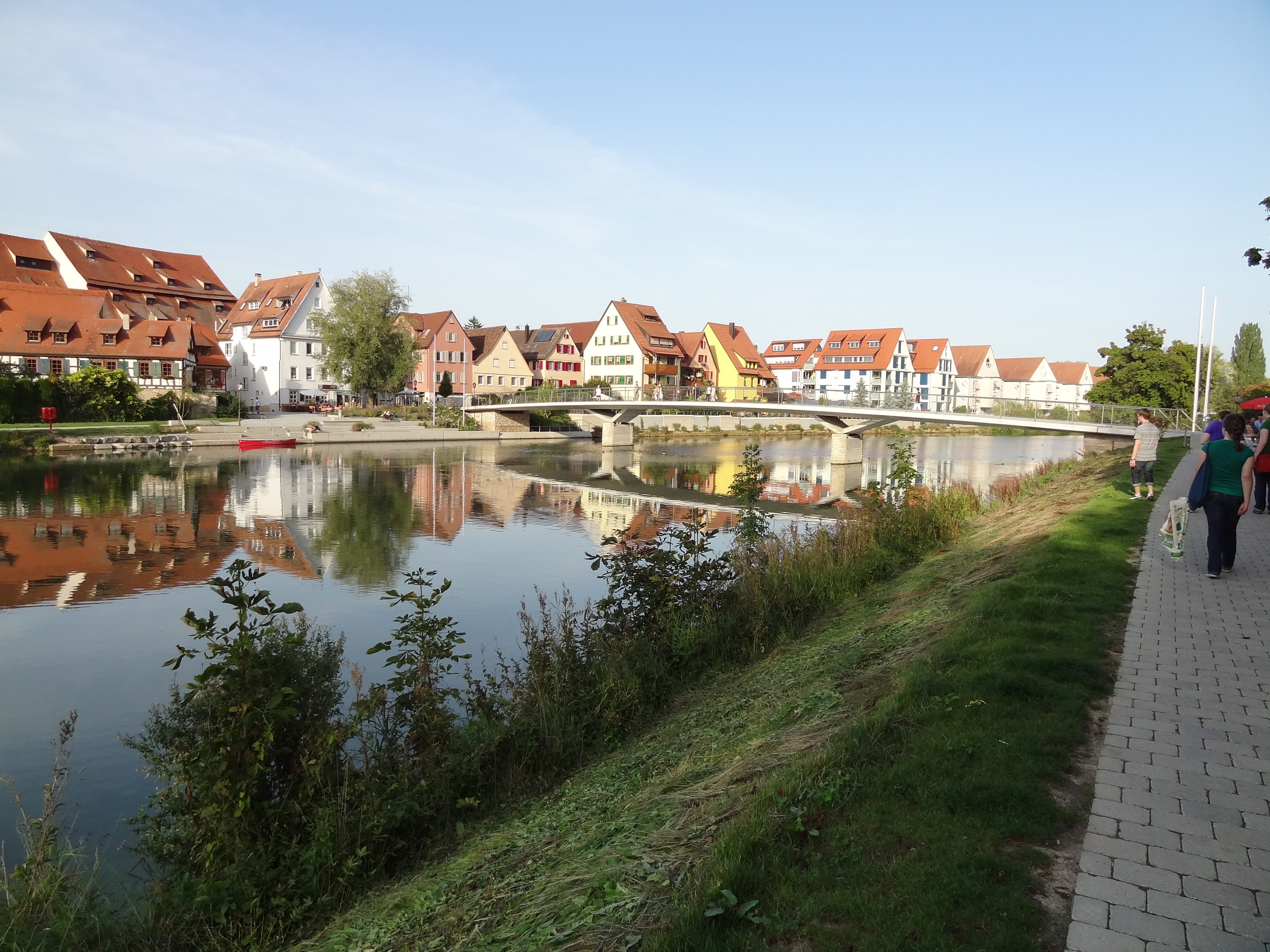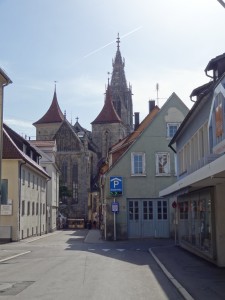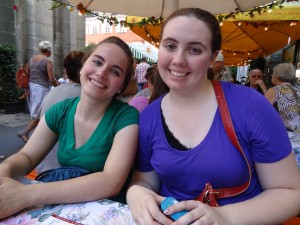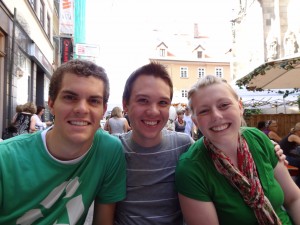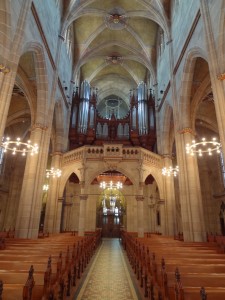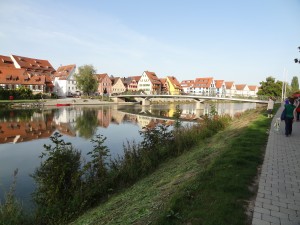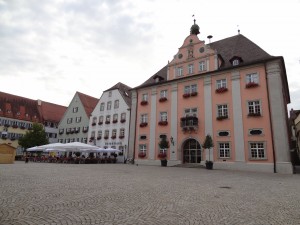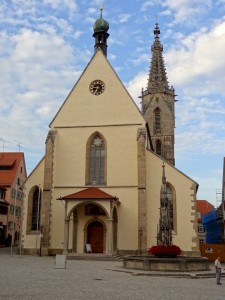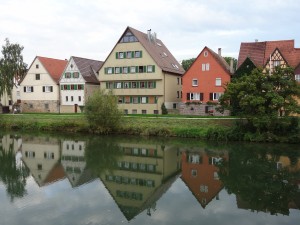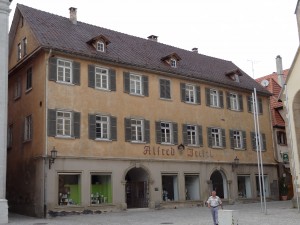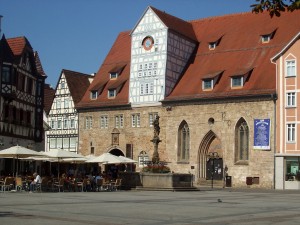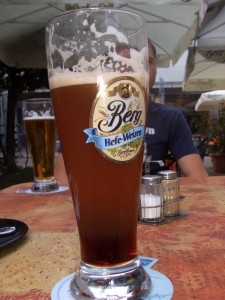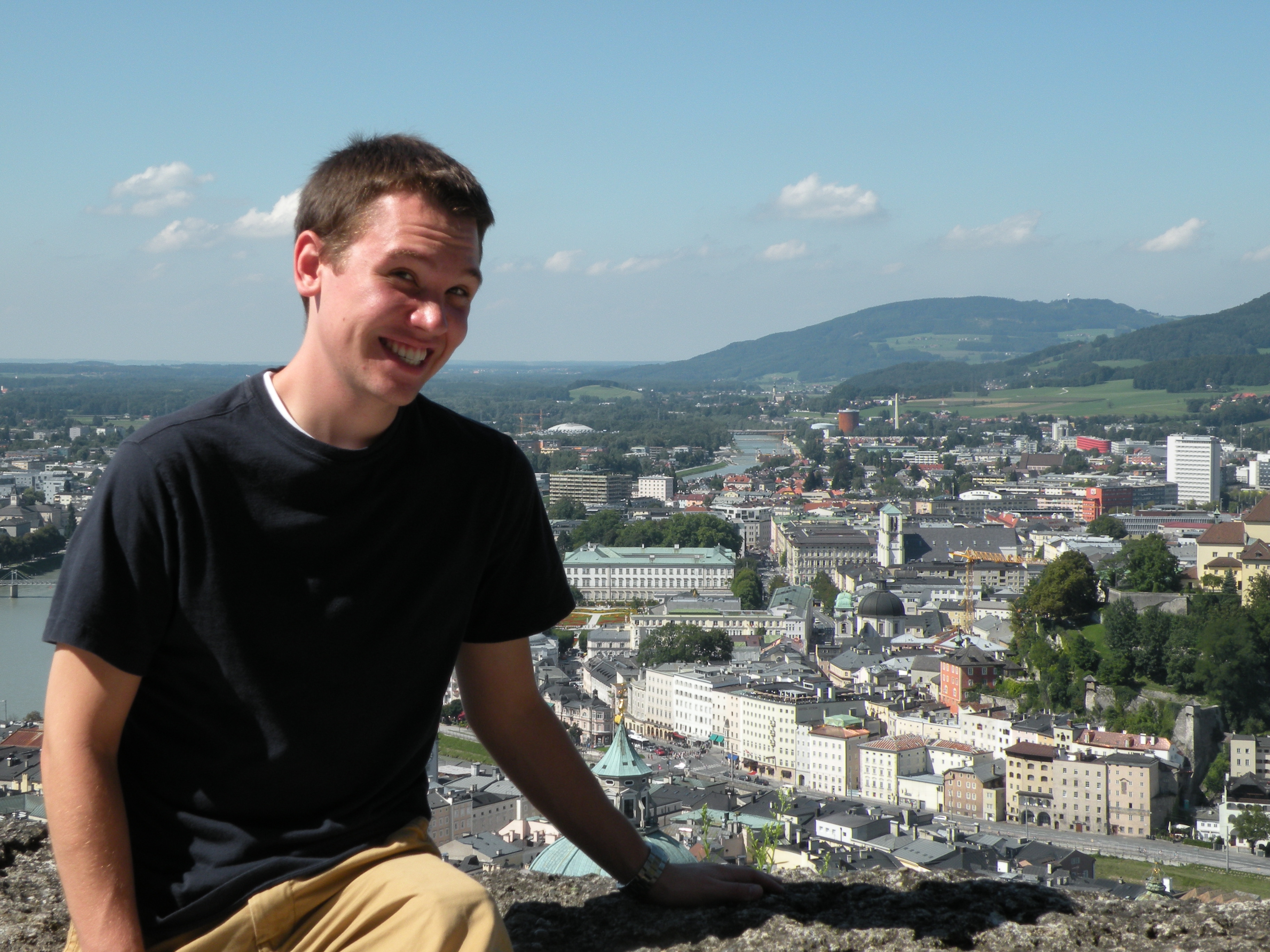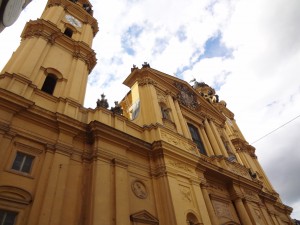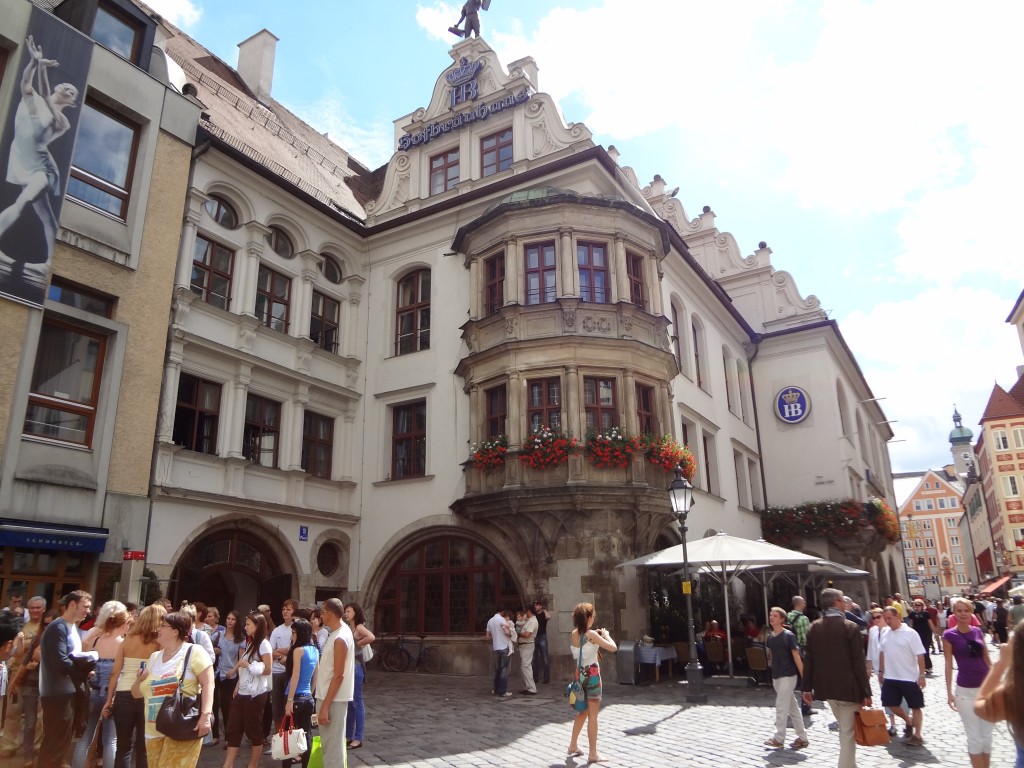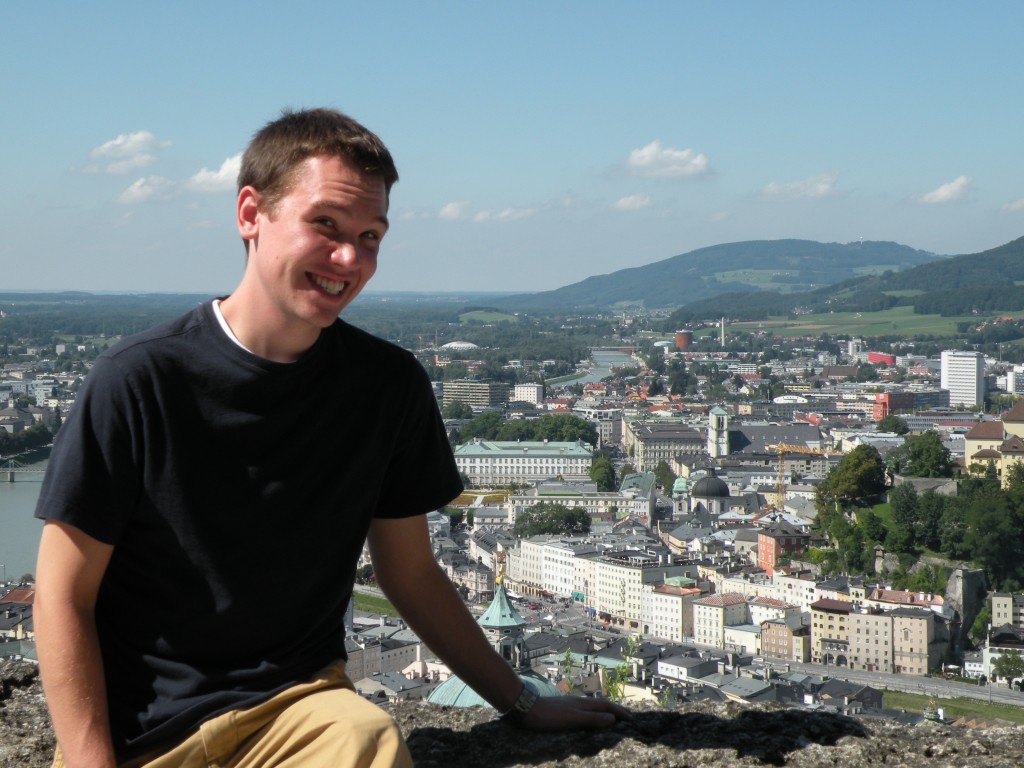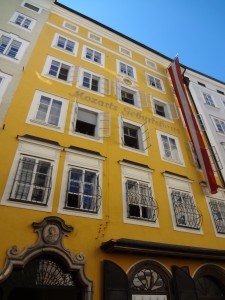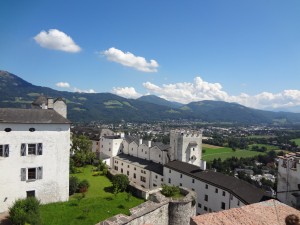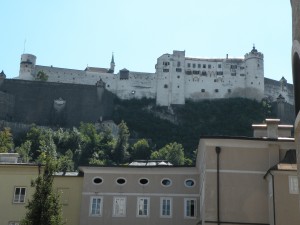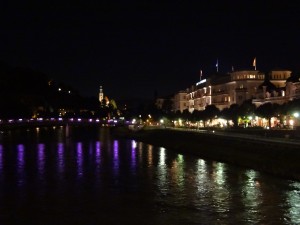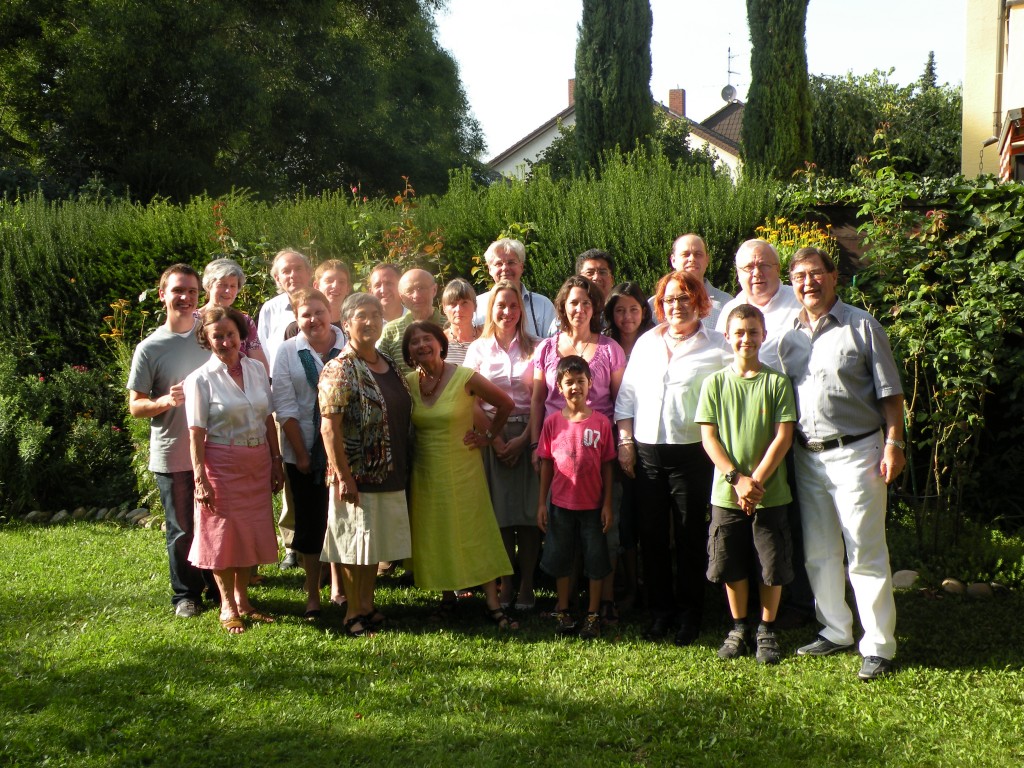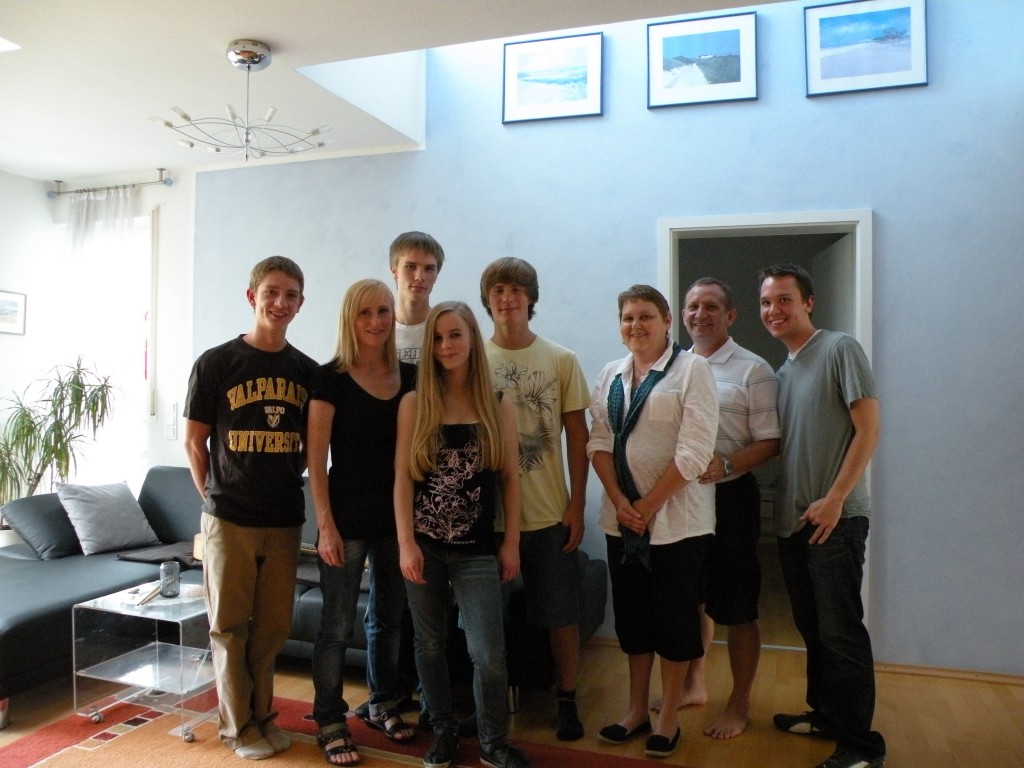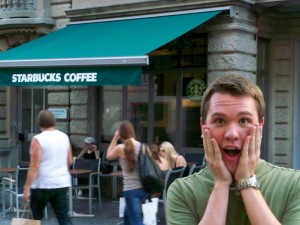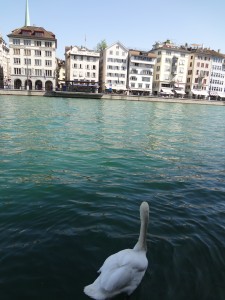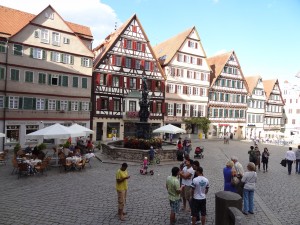
It goes without saying that many Germans can communicate pretty well in English. Even if they don’t speak it fluently, chances are that many people you come across will know enough of the language to have a simple conversation.
Quite frequently, when a member of our Valpo group here in Tübingen tries to start a conversation with somebody else in German, he/she gets a response in English. None of us are perfect at German, but I would say that we’re all pretty competent when it comes to day-to-day conversations. Whether ordering food at a restaurant, introducing yourself to someone new, asking for directions, or silently looking at a train schedule, it isn’t at all unusual for someone to drop everything to help the apparently-confused Americans.
I’m pretty sure that because so many people here speak English, they’re always looking for people to practice it with. In America, I know I look for opportunities to speak German to people too, since there are so few people to stay in practice with. Once I read in a travel guide booklet that the reason Germans prefer to speak English with foreigners is because they are a very orderly society, and easily frustrated when people aren’t able to simply communicate (I’m not quite sold on that one, but I guess it makes sense.) Other times, I think, “Maybe everyone here is just very friendly and always willing to help out.”
Regardless of the reason, unless I am actually extremely confused or at a total loss for words, I would prefer not to hear a response in English. I don’t mean to sound rude, but I am here for the entire year with my main purpose being, to come back as fluent in German as possible – a goal that hinges on the daily immersion in the language. Many people here know this, which is why I’m grateful that my German neighbors and friends speak almost entirely in German with me.
After choosing the words, planning the word order, and practicing the sentence structure carefully in your head many times over, the outcome of a conversation can really make or break your day. I know that my grammar and word order may not be perfect, but I feel like I am almost always understandable. When you’re learning another language there’s nothing that feels better than getting through a difficult conversation without resorting back to your native language. On the contrary, the opposite outcome can sometimes be frustrating.
So our little Valpo group in Tübingen is constantly challenged to blend in with not only the culture, but the language and the way it is spoken. We try as hard as we can to hide our American accents and to express ourselves as thoroughly as we can. We’ve made an “inside” game of getting through conversations this way. When we receive a response in English, we imagine someone pressing a giant red “FAIL” button that makes a buzzer sound. Sometimes one of us even makes the noise out loud, as we laugh quietly at our inability to play German impostor.
For example:
At Ikea last week, and I ordered Swedish meatballs with gravy on the side for Jake who was watching our stuff at the table. I thought that what I said was understandable, as the man working behind the counter scooped up some meatballs and some gravy, which he did indeed put on the side. Then he faced me again and asked, “Would you like french fries too?”
“FAIL,” I thought, as I imagined the proverbial buzzer being pressed. “What did I say? Was it wrong to ask that way? Is my accent really that strong?” I thought.
As I walked away, he turned to me again and shouted, “ENJOY YOUR MEAL!” Everyone in line turned to look at the guy who couldn’t speak German, as I walked away embarrassed. Nobody else got a similar farewell.
In situations like this, I try as hard as possible to continue in German, hoping that the other person will switch back. Sometimes they do, but sometimes they’re pretty determined to speak their nearly-flawless English with you. Continuing to speak German can be pretty difficult for a few reasons. I know that my German is probably not as good as their English, not to mention that they switched to English because of some unknown mistake I made.
Anyway, I’ll have to do another post when we make it through an entire day without anybody having any “fail buzzer” experiences. Until then, we’ll all just keep trying! For the most part, people are very understanding and want to help us learn their language. Some people are even surprised that an American is trying to learn to speak to them in German.
I still have no internet, but my communication with people back home will improve once I do! I am really trying to limit myself, however, when it comes to email, Facebook etc. so that I can have a truly immersive experience. Our “Deutsch Kompakt Kurs” (German Compact Course) starts on Monday, and I’m getting pretty excited for it. I’ve heard a lot of great things about the program, and I’m looking forward to meeting some new people, traveling around the area, improving my language skills, and becoming more familiar with life in Germany.
Bis dann!
